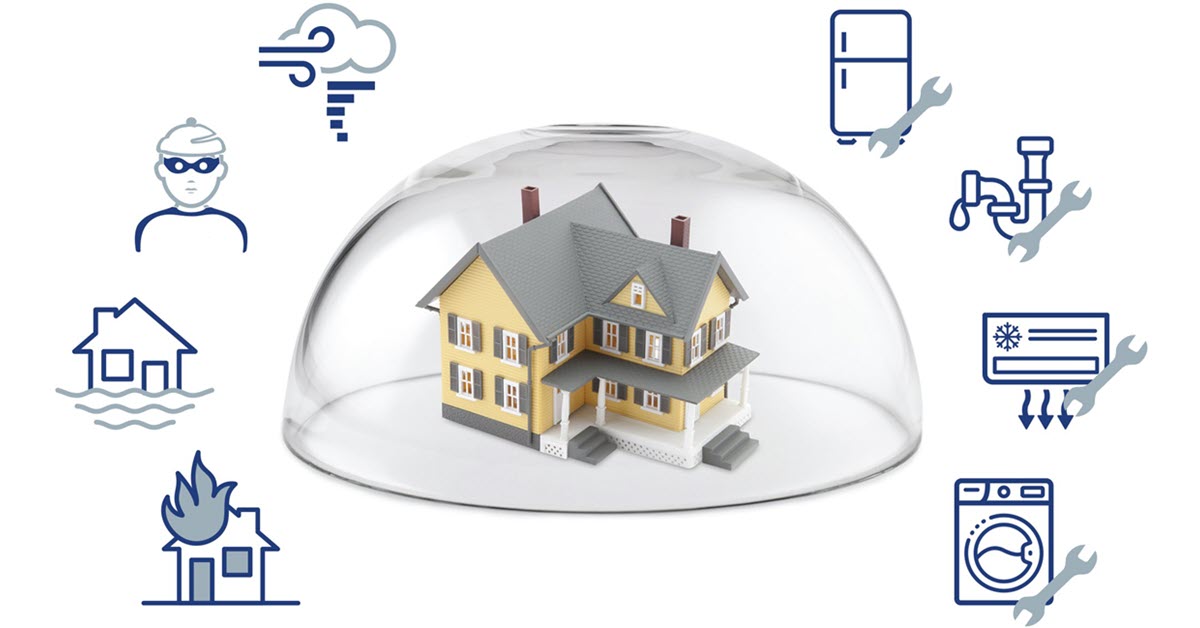Understanding Home Warranty Insurance: What You Need to Know

Introduction to Home Warranty Insurance
Owning a home can be both rewarding and challenging. As much as you want to make sure everything is in top shape, things can break down unexpectedly, and repair bills can pile up. That’s where home warranty insurance comes in. But what is it, and is it worth it? Let’s explore how home warranties work, what they cover, and whether they’re a good fit for your home.
What is Home Warranty Insurance?
Home warranty insurance is a service contract that helps cover the cost of repairs or replacements for essential systems and appliances in your home. These systems can include things like your HVAC system, plumbing, electrical systems, or kitchen appliances. Unlike homeowners insurance, which covers damage from unexpected events (like fires or natural disasters), home warranty insurance focuses on the repair or replacement of home appliances that break down due to normal wear and tear.
How Does Home Warranty Insurance Work?
When an appliance or system breaks down, you call your home warranty provider. They will typically send a technician to your home to diagnose the problem and, depending on your coverage, either repair the item or replace it. You’ll pay a service fee or deductible, and the home warranty provider will handle the rest. However, it’s important to note that these plans usually don’t cover damage caused by accidents or negligence.
Types of Home Warranty Plans
There are different types of home warranty insurance plans, and the right plan for you will depend on your home and needs.
Basic Coverage Plans
A basic plan typically covers essential home systems, such as plumbing, electrical, and HVAC systems. If your home has several older systems, a basic plan can provide peace of mind without breaking the bank.
Comprehensive Coverage Plans
Comprehensive plans are broader and often cover a wider range of home systems and appliances, including dishwashers, refrigerators, and more. If your home has multiple appliances or older equipment, this could be a good option for you.
Optional Add-ons and Upgrades
Some providers offer additional coverage options for an extra fee. This could include coverage for things like pools, spas, septic systems, and more. These add-ons can be tailored to your specific needs.
Benefits of Home Warranty Insurance
Join ETDH programs now can offer several benefits for homeowners, renters, and even homebuyers and sellers.
Financial Protection for Homeowners
The most significant benefit of home warranty insurance is the financial protection it offers. Instead of paying out-of-pocket for expensive repairs or replacements, your home warranty provider covers much of the cost. This can save you thousands of dollars in repair bills.
Peace of Mind for Homebuyers and Sellers
Home warranty insurance is often used by homebuyers and sellers to add extra peace of mind during the home buying process. For sellers, it can make the property more attractive by assuring buyers that they won’t be stuck with expensive repairs soon after moving in. For buyers, it’s a safeguard against unexpected home repair costs after the purchase.
Quick Repair Services
With home warranty insurance, you don’t need to hunt for a reliable contractor. The provider will connect you with vetted professionals, which can save you time and hassle.
How to Choose the Right Home Warranty Insurance Plan
Choosing the right home warranty plan can be tricky, but understanding your home’s needs will help you find the perfect match.
Assessing Your Home’s Needs
Before choosing a plan, take stock of your home and its systems. Do you have older appliances that may need more attention? Are there certain systems or appliances you rely on the most? Understanding your needs will help you determine the level of coverage required.
Comparing Plans and Providers
It’s essential to compare plans from different providers to ensure you’re getting the best deal. Look at the services covered, the reputation of the company, the customer support provided, and the costs involved. Don’t forget to check the exclusions to make sure you’re not overlooking something important.
Common Exclusions in Home Warranty Insurance
While home warranty insurance covers many repairs and replacements, there are some common exclusions you should be aware of.
What’s Not Covered by Home Warranties?
Home warranties typically don’t cover:
- Pre-existing conditions or problems that were evident before the contract began.
- Damage caused by neglect or improper maintenance.
- Certain types of damage (like fire or water damage).
- Items outside of your contract’s coverage (like luxury appliances or non-standard systems).
How to Avoid Surprises in Your Coverage
Before signing a contract, carefully read the terms to ensure that you understand what is and isn’t covered. Make sure the plan aligns with the needs of your home.
Costs and Fees Associated with Home Warranty Insurance
Home warranty insurance can be affordable, but it’s essential to understand all of the costs involved.
Monthly or Annual Premiums
Most home warranty companies charge a monthly or annual premium for their service. These premiums can vary depending on the level of coverage you choose. On average, homeowners can expect to pay between $300 and $600 annually for a basic plan.
Service Call Fees and Deductibles
When you file a claim, you’ll likely be required to pay a service call fee, which is a flat fee charged for a technician to come to your home. This can range from $50 to $125 per visit, depending on your provider.
Understanding Coverage Limits
Many home warranty plans have limits on how much they will pay for certain repairs or replacements. It’s essential to understand these limits to avoid unexpected out-of-pocket costs.
Home Warranty Insurance vs. Homeowners Insurance
While both types of insurance are important, they serve different purposes. Here’s a quick breakdown of the key differences:
Key Differences Between the Two
- Homeowners Insurance protects you against losses caused by events like fires, storms, or theft. It also covers your liability in case someone gets injured on your property.
- Home Warranty Insurance covers repairs and replacements for home systems and appliances that break down due to wear and tear.
Homeowners insurance is about protecting your home and belongings from unexpected damage, while home warranty insurance focuses on the functionality of systems and appliances.
Common Issues with Home Warranty Insurance
Though home warranty insurance can be a great asset, there are a few common issues that homeowners should keep in mind.
Denied Claims and How to Handle Them
One common complaint is that home warranty companies sometimes deny claims. This could be due to exclusions, misunderstandings, or errors in documentation. If your claim is denied, ask for a detailed explanation and be prepared to appeal if necessary.
How to File a Claim Correctly
Filing a claim should be straightforward, but it’s crucial to follow the company’s specific process to avoid delays. Make sure you document the issue thoroughly, keep track of your service calls, and know your policy’s limits.
Conclusion
Home warranty insurance can be a smart choice for homeowners looking to protect their finances from the high cost of repairs and replacements. By understanding how it works, what it covers, and how to choose the right plan, you can make an informed decision and keep your home in great condition without breaking the bank.

